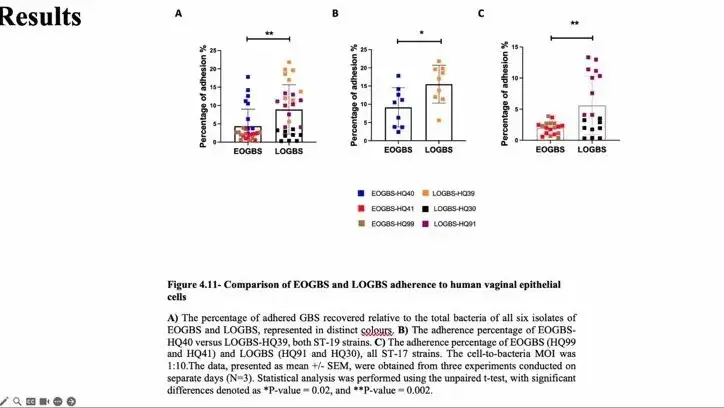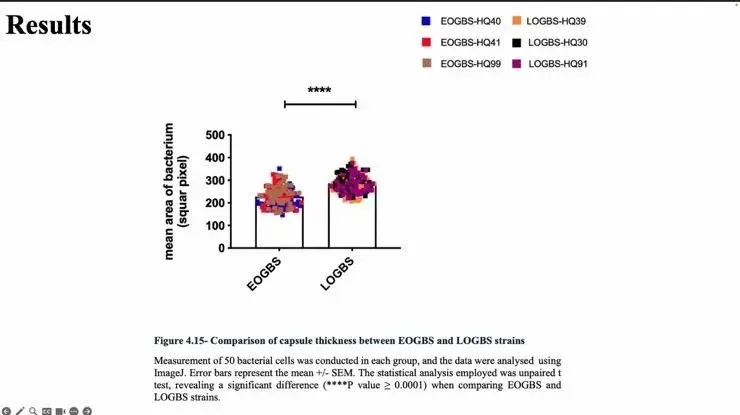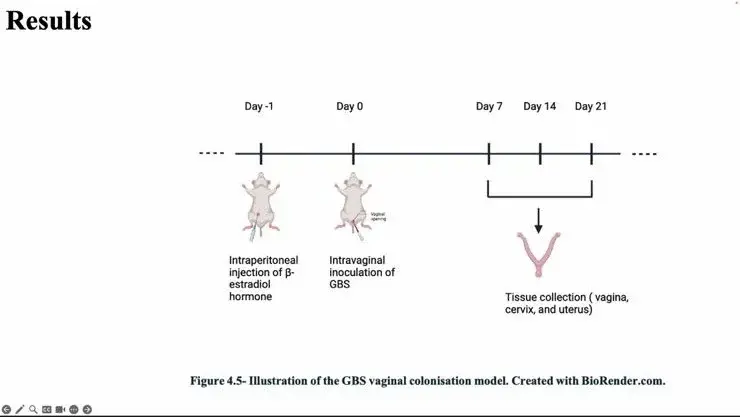Towards Unveiling Virulence Dynamics and Effective Prevention of Neonatal Group B Streptococcus Infections
Under the follow-up of Dr. Abdullah bin Faleh Alsrhani, Dean of the College of Applied Medical Sciences, and in line with the college’s commitment to supporting scientific and research activities and its continuous efforts to promote knowledge exchange among faculty members and researchers,
the College of Applied Medical Sciences, represented by the Department of Clinical Laboratory Sciences, organized a scientific lecture entitled:
“Towards Unveiling Virulence Dynamics and Effective Prevention of Neonatal Group B Streptococcus Infections: A Comprehensive Investigation.”
The lecture was delivered by Dr. Bayan Salem Falatah, who presented the findings of her research focusing on virulence factors and preventive mechanisms against Group B Streptococcus (GBS) infections in newborns.

Lecture Content:
Dr. Bayan discussed several key topics, including:
The epidemiological and clinical characteristics of Group B Streptococcus.
The dynamics of virulence and mechanisms of host tissue invasion.
The latest research trends in understanding bacterial–host immune interactions.
Innovative strategies for developing effective preventive measures to reduce neonatal infections.
The lecture also addressed the main objectives of Dr. Bayan’s ongoing research, namely:
Evaluating the immune response and protective efficacy of the GBS Spb1 protein in a murine model of invasive disease.
Assessing the functional role of antibodies generated in response to Spb1 protein immunization, aiming to explore its potential use as a foundation for developing an effective prophylactic vaccine against invasive Group B Streptococcus infections.


Lecture Objectives:
To highlight the importance of scientific research in understanding bacterial pathogens affecting newborns.
To present the latest findings in the field of immunity and prevention of GBS infections.
To enhance researchers’ and students’ awareness of the role of applied research in infectious disease prevention.
To encourage research collaboration across academic departments in the medical and biological sciences.
Engagement and Outcomes:
The lecture witnessed remarkable attendance and active participation from faculty members, with a rich scientific discussion on vaccine development mechanisms and the role of acquired immunity in preventing bacterial infections.
Attendees expressed great interest in the presented findings due to their potential practical and future applications in reducing neonatal bacterial infections.




